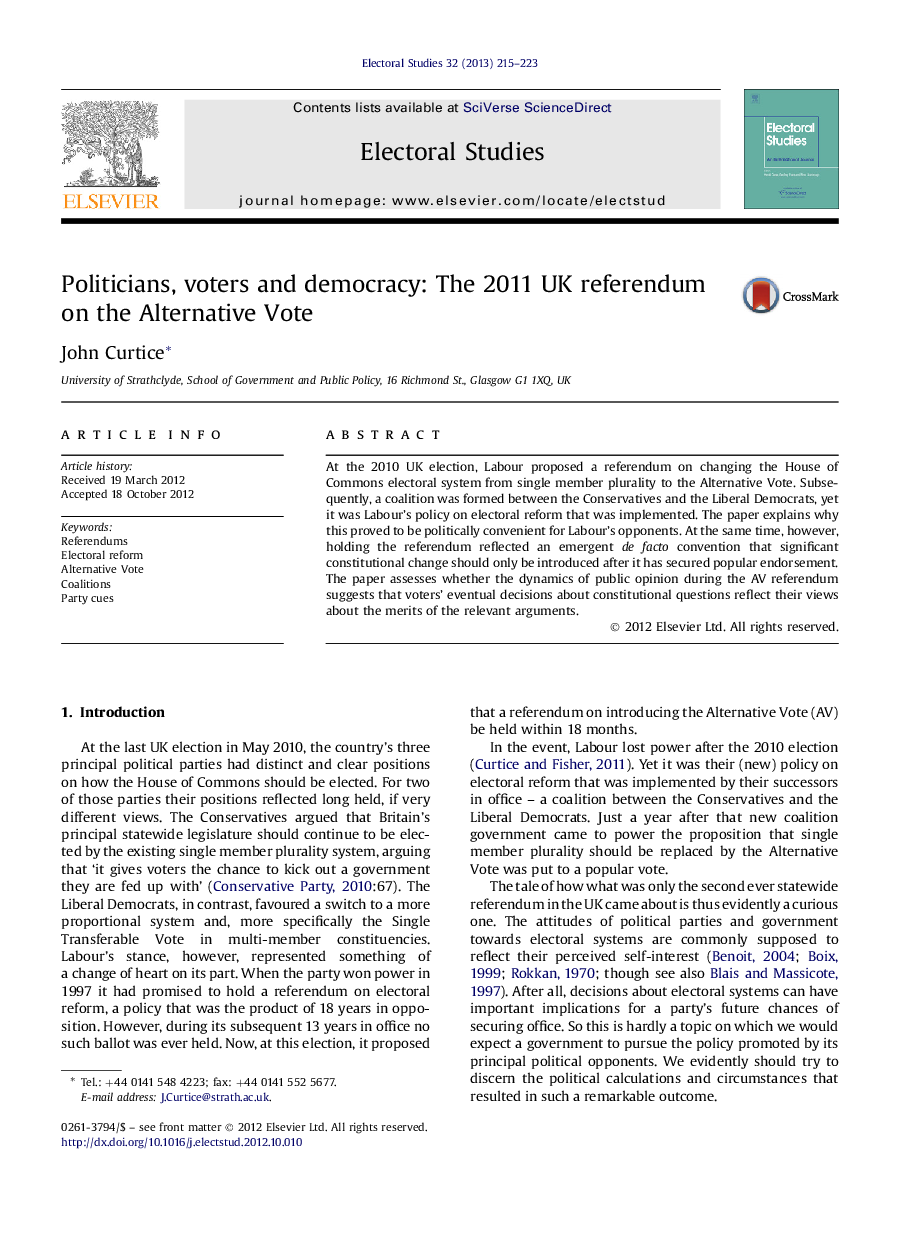| Article ID | Journal | Published Year | Pages | File Type |
|---|---|---|---|---|
| 1051864 | Electoral Studies | 2013 | 9 Pages |
At the 2010 UK election, Labour proposed a referendum on changing the House of Commons electoral system from single member plurality to the Alternative Vote. Subsequently, a coalition was formed between the Conservatives and the Liberal Democrats, yet it was Labour's policy on electoral reform that was implemented. The paper explains why this proved to be politically convenient for Labour's opponents. At the same time, however, holding the referendum reflected an emergent de facto convention that significant constitutional change should only be introduced after it has secured popular endorsement. The paper assesses whether the dynamics of public opinion during the AV referendum suggests that voters' eventual decisions about constitutional questions reflect their views about the merits of the relevant arguments.
► Holding the Alternative Vote (AV) referendum facilitated a coalition agreement. ► Though the party interests were clear, the choice on offer was very limited. ► Most voters abstained, while opinion proved highly volatile. ► The dynamics of the campaign reflected voter reaction to the campaign arguments.
